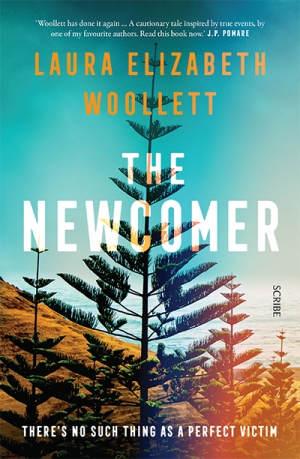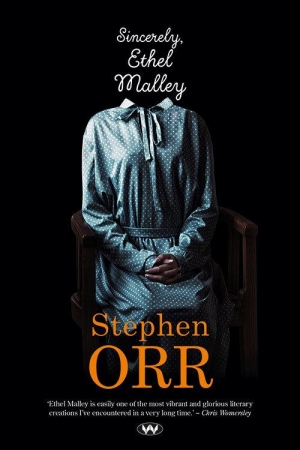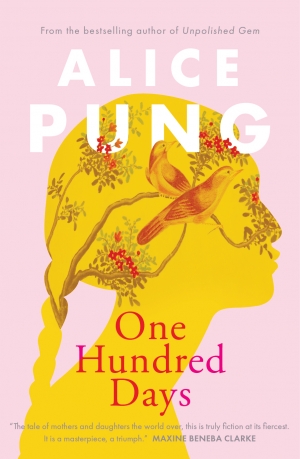Australian Fiction
Three narratives of women’s experience by Tania Chandler, Nicola West, and Sasha Wasley
Three recent novels by Australian women deal with current and increasingly urgent political questions about female identity and embodiment. They each use the conventions of popular realist fiction to provoke thought about the causes of female disempowerment and the struggle for self-determination. Coincidentally, they are also set, or partially set, in Australian country towns, although their locations are markedly different, and their plots culminate in the revelation of disturbing secrets.
... (read more)Jay Daniel Thompson reviews 'The Newcomer' by Laura Elizabeth Woollett
The title character of Laura Elizabeth Woollett’s second novel, The Newcomer, is Paulina Novak, who has arrived on Fairfolk Island after leaving a finance career in Sydney. If she is wanting to make a new start, then she’s mistaken; Paulina’s life seems perpetually sullied by alcoholism, an eating disorder, and a tendency to fall for callous men. Acquaintances say that her head is ‘messy’. Paulina herself remarks: ‘My whole life’s a fuck-up.’
... (read more)Susan Sheridan reviews 'Sincerely, Ethel Malley' by Stephen Orr
‘Ern Malley’ – a great literary creation and the occasion of a famous literary hoax – has continued to attract fascinated attention ever since he burst upon the Australian poetry scene more than seventy years ago. But his sister Ethel has attracted little notice, she who set off the whole saga by writing to Max Harris, the young editor of Angry Penguins, asking whether the poems left by her late brother were any good, and signing herself ‘sincerely, Ethel Malley’.
... (read more)In the latter half of this novel, one of its protagonists is viewing a collection of butterflies at the Oxford University Museum of Natural History. This forms part of Jasmine’s holiday with her mother, Della, a tour of famous literary and other notable cultural sites in the United Kingdom. By this stage they have visited Stratford-upon-Avon, Brontë country in Haworth, and Jane Austen’s Bath and Southampton, and have been duly impressed or, in Della’s case, underwhelmed. But now Jasmine can only feel sadness: ‘We take the life of a living thing, hold it to display, because we feel entitled to the knowledge, entitled to the owning, the possessing.’
... (read more)A triptych of Gothic novels by Erina Reddan, Kelli Hawkins, and Kathy George
Is it tautological to describe a work of fiction as ‘family Gothic’? After all, there’s nothing more inherently Gothic than the family politic: a hierarchical structure ruled by a patriarch, as intolerant of transgression as it is fascinated by it, sustaining itself through a clear us/them divide, all the while proclaiming, ‘The blood is the life.’ Yet three new Australian novels Gothicise the family politic by exaggerating, each to the point of melodrama, just how dangerous a family can become when its constituents turn against one another.
... (read more)It’s difficult to describe what it’s like to be raised in a Chinese family, especially when you are surrounded by markers of Western society. There is no such thing as talking back to your parents or refusing to do what they say. As a child, I never went to sleepovers. During my teenage and young adult years, I felt increasingly trapped in my own home. Everything I did was scrutinised; my parents never seemed to take into account my wants or needs. I found myself grasping for any scrap of independence, usually through lying or stealing or a combination of the two. As children, we are continually told that adults do things to protect us, especially when they are things we don’t particularly like. But when does protection morph into something uglier? When does it smother us, as if our agency has been stripped from us?
... (read more)Jane Sullivan reviews 'Bila Yarrudhanggalangdhuray' by Anita Heiss
There are two famous statues in the Gundagai area. One is the Dog on the Tuckerbox. The other is of two heroes, Yarri and Jacky Jacky, who, with other Wiradjuri men, went out in their bark canoes on many exhausting and dangerous forays to rescue an estimated sixty-nine people from the Great Flood of 1852.
... (read more)Three new crime novels by Iain Ryan, Helen Fitzgerald, and Catherine Jinks
For this reviewer, the sign of a healthy crime-fiction ecosystem isn’t merely the success of the ‘big names’ but also the emergence of writers whose voices are so distinctive as to be singular. Sometimes these writers become commercially successful in their own right, and sometimes they remain literary outliers, drawing their readership from a smaller but avid following. When I think of the health of American crime fiction in the late 1960s and early 1970s, I recall not only the success of Mario Puzo, but also the kind of writing culture that sustained the dark vision of an author such as George V. Higgins. The same goes for Britain in the 1980s, where Dick Francis was still publishing prolifically when Derek Raymond emerged. Turning to twenty-first-century America and the success of writers like Michael Connelly and Karin Slaughter, it’s the rise of Megan Abbott and Richard Price that illustrates the full potential of that culture’s capacity for crime storytelling.
... (read more)Three new novels by Susan Johnson, Ella Baxter, and Clare Moleta
A new Susan Johnson novel is always a treat, partly because you get the sense that with each one she has set herself a specific creative challenge, and partly because she is such a fine writer. In From Where I Fell (Allen & Unwin, $32.99 pb, 338 pp), the epistolary novel, popular in the nineteenth century, has been updated, with the entire work in the form of emails. Nothing new in that, but what makes this different is that the contemporary problem of emailing someone unintentionally is followed through with that intellectually teasing ‘what if’ thread: what if the person you accidentally contacted was someone with whom you wanted to keep communicating? What if this person was someone to whom you could confess your most private thoughts? And what if this person never responded in a conventional manner?
... (read more)At the core of Love Objects, Emily Maguire’s sixth novel, is a delicate exploration of the responsibility that comes with love and what it means to care for others in both the emotional and practical senses of the word. The book’s protagonist, Nic, is a caustic but kind-hearted woman, positioned, in many ways, so as to be overlooked by the world. Middle-aged, childless, and living alone in her childhood home, she works as a cashier in a low-end department store. She is the kind of woman who often becomes invisible in our society, so it seems fitting that she has an affinity for the forgotten and the overlooked.
... (read more)





